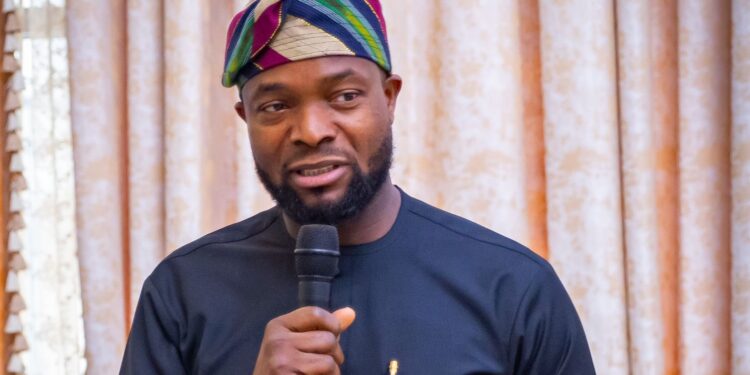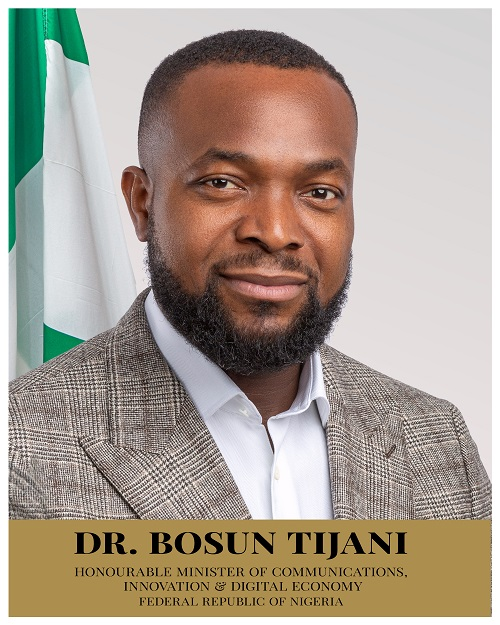Views: 0
In the wake of the Federal Executive Council’s announcement of a Special Purpose Vehicle (SPV) aimed at expanding Nigeria’s fibre optic infrastructure, the nation stands at the precipice of a digital revolution.

This initiative, by design, is poised to fundamentally transform internet access across Nigeria, promising to enhance the digital startup ecosystem and catalyze economic growth. However, as with any ambitious endeavor, the path is fraught with potential pitfalls that must be navigated with vigilance and integrity.
According to Nigeria’s Minister of Communication, Innovation and Digital Economy the project will be modelled in governance and operations similarly to some of the best Public-Private Partnership setups in Nigeria, such as NIBSS and NLNG.
Tijani also states that the government through the SPV will be “working with partners and stakeholders from the government and private sector” who will build the additional fibre optic coverage required to take Nigeria’s connectivity backbone “to a minimum of 125,000km, from the current coverage of about 35,000km.” He claims “upon delivery, this will become Africa’s 3rd longest terrestial fibre optic backbone, after Egypt and South Africa.”
This extensive coverage will surely enable Nigeria to optimise the unique benefit of having 8 submarine cables already landed in Nigeria and therefore drive an uptake of the data capacity that the cables offer, beyond the current usage level of 10%.
The proposed SPV, charged with adding 90,000km to Nigeria’s fibre optic network, is not just an infrastructure project; it’s a lifeline to global competitiveness and inclusion. By potentially increasing Nigeria’s internet penetration over 70% and slashing the cost of access, the SPV could democratize digital access, bridging a critical divide between the connected and the disconnected.
Moreover, as the project draws inspiration from successful models like NLNG, suggesting a hybrid ownership structure where both government and private entities, possibly including foreign multinationals, share stakes. This is a strategic approach, ensuring the project benefits from both public oversight and private sector efficiency and innovation.
However, the stakes are undeniably high for Dr. Tijani.
In a country where large-scale projects are often marred by delays and budget overruns, the SPV must break the mold. The Nigerian government and its partners must commit to absolute transparency and accountability, shunning any whisper of corruption or crony capitalism. This project is too vital to be compromised by the ills that have plagued previous initiatives.
To this end, clear timelines and rigorous key performance indicators (KPIs) must be established from the outset. These KPIs should not only track progress but also measure impact—focusing on increased access, reduced costs, and socio-economic benefits across communities. A project of this magnitude should be a beacon of best practices, not an echo of past mistakes.
Moreover, the SPV should operate under a charter that mandates its listing on the Nigerian Exchange Group (NGX) and potentially other global exchanges. Such a move would not only enhance transparency but also ensure access to a broader pool of capital, crucial for the project’s long-term viability. Listing on exchanges would also signal to the international community that Nigeria is serious about both its digital and financial market reforms, thus bolstering foreign direct investment (FDI) inflows.
Transparency must be the cornerstone of this SPV. Every contract, every tender, every milestone should be open to public scrutiny, ensuring that the SPV operates not as an isolated entity but as a public trust. Furthermore, the inclusion of international partners should be handled with a keen eye towards genuine value addition, rather than merely financial investment.
As Nigeria embarks on this transformative journey, the global digital economy will not wait for stragglers. The SPV is a monumental opportunity, but it must be managed with the highest standards of transparency and efficiency.
Only then can it truly fulfill its promise as a cornerstone of Nigeria’s socio-economic revolution, delivering not just connectivity but a sustainable, inclusive digital future. As such, this project is not just a test of engineering and financial acumen but a test of governance and commitment to the Nigerian people.


